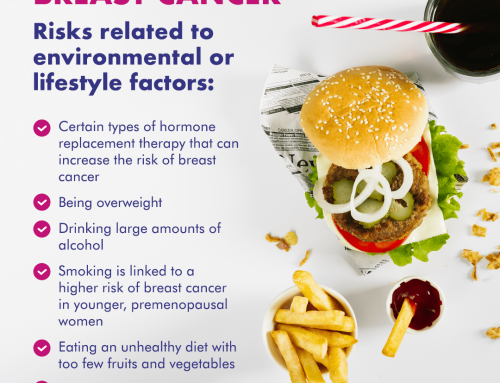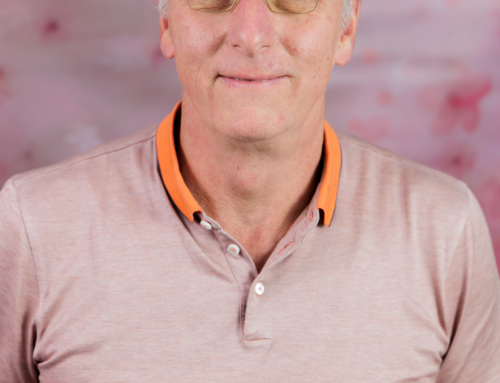Article by: Discovery
Professor Justus Apffelstaedt, Associate Professor of Surgery at the University of Stellenbosch, head of the Tygerberg Breast Clinic, and prostate cancer survivor, shares advice from his personal experience on how to face a cancer diagnosis head-on.
If you want sound, empathic advice, one of your best options is to talk to a cancer surgeon who’s survived cancer, someone like Professor Justus Apffelstaedt. Six years ago, a routine prostate-specific antigen test showed he had prostate cancer.
Not only did he survive his prostate cancer, he has over 20 years’ experience in breast health and the management of breast cancer. Here he shares guiding principles on how to approach a cancer diagnosis.
Catch cancer early with routine screenings
Prof Apffelstaedt goes for routine screenings which contributed to his complete recovery. A prostate-specific antigen blood test screens for signs of prostate cancer in its early stages when it’s most treatable.
Researchers agree that catching cancer early affects treatment success and improves survival rates. A prostate screening is recommended for all adult men, generally starting at age 40. All men should create a proactive prostate health plan that is right for them based on their lifestyle and family history.
Take someone with you to share the news
If cancer might be a possibility, taking someone along to be your eyes, ears and memory during the shock of the news can prove invaluable. Prof Apffelstaedt waits several days for his patients to get over the diagnosis shock before consulting with them again to discuss treatment. “Never decide anything on the spur of the moment,” he says. “Mull over it. Cancer often gives you time to decide.”
Find the right doctor for you
Once diagnosed, Prof Apffelstaedt approached a group of pathologists to find one that specialised in prostate cancer. He then asked the pathologist which surgeon routinely sent him the most complete specimens. He approached that surgeon and asked him how many cases he’d done and what his complication rates were. He called a veteran therapeutic radiographer or radiation machine operator and asked her who, in her opinion, was the most precise for radiation.
“I’d heard that some of them take over an hour getting the irradiation field exactly accurate, while others are not quite as precise,” he says. A long chat with the radiographer and his own physician eventually led to him deciding against radiation and choosing surgery instead. “The potential side effects and benefits didn’t seem to be in balance in my case,” he explains.
Prof Apffelstaedt shares insight from his personal experience of recovery. “Any treatment for cancer and indeed any medical treatment, has side effects. So, I had the typical side effects after surgery. It was initially hard to cope as I am a very active person and had to rebuild activity over months again. Cancer is a potentially deadly disease; treatment is invasive and will leave scars in the body and the mind. You cannot expect to come out the other end and be the same as before. For me the side effects improved greatly with time.”
Choose a multi-disciplinary clinic or team
Prof Apffelstaedt says who is treating you and where, is more important than the kind of radiation or medical oncological therapy you get. Controversial? Perhaps. Yet, conclusions in 123 of 125 studies in a meta-analysis of research papers in 2005 showed that cancer treatment outcomes were better in high-volume practices than in single or individual practices. “So, talk to people who do this stuff only and very little else,” he advises.
Choose a multi-disciplinary clinic or team, consisting of a surgical oncologist, medical and radiation oncologists, and a plastic surgeon, where appropriate.
Existing conditions and other factors that may influence treatment
Prof Apffelstaedt says existing conditions such as heart conditions, obesity, diabetes and deep vein thrombosis can complicate or reduce the efficacy of cancer therapy. Chemotherapy treatment plans have to be tailored to specific heart conditions as a history of cardiac failure may eliminate the possibility of surgery. A claustrophobic patient can prove a nightmare in the radiotherapy room, where any movement poses a major risk.
Besides general health, a patient’s age is important. “You don’t treat an 80-year-old person as aggressively as you would treat a 30-year-old person,” Prof Apffelstaedt explains.
Trust your doctor
Upon diagnosis, Prof Apffelstaedt’s best advice is to seek out a second opinion, but not a third or fourth. “From the third opinion on, you’re going to get confused. Rather ask the doctor for their standard of care and what alternatives can be considered. I usually tell patients what can be done with similar efficacy. Consult with a doctor with whom you are comfortable and then relinquish control. Far too many patients try and control the process instead of, after having done their homework, trusting and surrendering,” he says.
Be prepared to pay for good advice
This means paying for the time a good oncologist needs to explain everything to you and checking with your medical scheme to see what they will cover.
With regard to credible website resources for patients, Prof Apffelstaedt recommends the United Kingdom’s NHS, the American Cancer Society, and similar high-quality websites.
What keeps Prof Apffelstaedt going?
“I get immense job satisfaction. Sometimes we fall short and things go wrong – that’s the dark side. But, with good planning and long experience, this becomes rare,” he says. After 30 years in healthcare, he still enjoys going into an operating theatre and curing a patient.
In the end, good financial and medical planning and diligent research are every bit as valuable to doctors as they are to patients.






